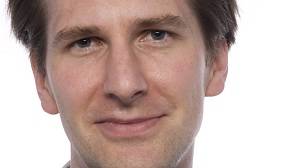-
Our programs for individuals - By management topics
- By learning format
-
Our programs for organizations
How to lead change with success?
An interview with Mathis Schulte, Associate Professor in Management and Human Resources at HEC Paris.

In the context of digital transformation, companies need to embrace change before it becomes inevitable and foster a culture of adaptability and learning. All too often change occurs when companies have no other option: in dire financial situations, after a public scandal or an organizational crisis. Too often it is then too late to turn the company around because change requires time and a clear vision of what the change should look like.
WHY IS IT SO HARD TO CHANGE AND TO EFFECT CHANGE?
Most leaders have difficulties in questioning themselves and effecting change because they are trained to focus on short-term goals and quick fixes to emerging problems. This mindset can make it difficult to understand that organizational change is not a short-term event but an ongoing process that requires time and commitment at all levels of the organization. Sometimes leaders also tend to look at change from a limited perspective, just focusing on the strategic or financial aspects while overlooking the human factor.
THE STRONG OR THE SOFT APPROACH?
When it comes to change, all-powerful leaders can be a double-edged sword. On the one hand, they can accelerate change by making the necessary tough decisions to push forward. On the other hand, all-powerful leaders may dictate change without the input and involvement of the workforce. Employees will then be compliant with the leader, but they will not be committed to the change. They will look for ways to return to their old habits or even sabotage the change effort.
HEC Paris Associate Professor Mathis Schulte
The more employees are involved in the decision making, the more they ‘own’ the change process and are supportive of it."
THE "RECIPE" FOR CHANGE
- Leaders should look for honest assessments of the company’s situation on a regular basis, and encourage critical thinking, risk-taking and the generation of new ideas
- Change cannot be implemented without employees at all levels of the organization committing themselves to the change. Thus, change management deals not just with the reorganization of work but above all with the alignment of the company’s vision for change and employees’ values, attitudes, and behaviors – while remaining ethical.
- Change management means dealing with uncertainty as no change effort goes completely according to plan. Progress needs to be checked continuously and action plans have to be adjusted accordingly.
- Most importantly, change should be explored from a multidisciplinary perspective, focusing on the individual, the team, the organization, and the societal context.
BEYOND THE “PRE-MADE RECIPE”
Instead of relying on simple recipes of how to deal with change, change leaders need to embrace its complexity and be prepared to deal with its erratic nature. This requires flexibility in thinking and behavior. They need to rethink their assumptions about change and reflect critically on their previous behavior by:
-
exploring alternative frameworks
-
introducing new lenses through which change can be understood
-
expanding their behavioral repertoire to deal with new situations.
Mathis Schulte, Associate Professor in Management and Human Resources at HEC Paris, and Professor in the CONSULTING & COACHING FOR CHANGEprogram delivered by HEC Paris and Said Business School, University of Oxford.
